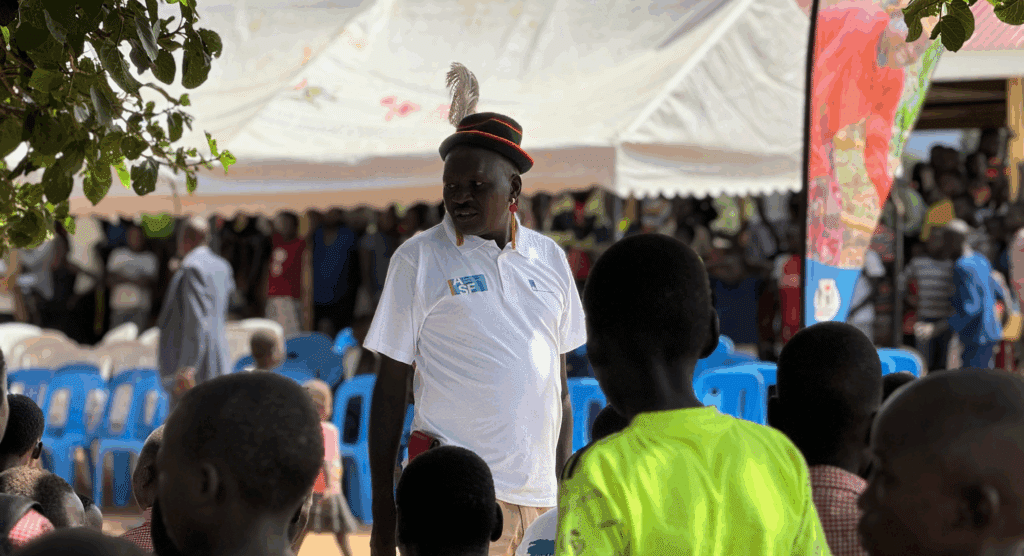
On 13 August 2024, after more than 15 years of legal proceedings, the International Crimes Division (ICD) of the High Court of Uganda delivered its long-awaited verdict in the case of Uganda v. Thomas Kwoyelo. The former Lord’s Resistance Army (LRA) commander was convicted on 44 counts of crimes against humanity, war crimes, and serious violations under Ugandan national law. This landmark decision marks the first time a domestic court in Uganda has concluded a full trial of international crimes committed during the Northern Uganda conflict.
Kwoyelo’s story is complex. Abducted in 1987 as a child soldier by the LRA, he rose through its ranks and participated in numerous atrocities until his capture by the Uganda People’s Defence Forces( UPDF) in 2009. His trial began in 2018 and concluded with a 40-year sentence reduced by 15 years for time already served in pre-trial detention.
The trial was held under the ICD, a special division established in response to the Juba Peace Agreement’s provisions on accountability and reconciliation. The conclusion of this case reaffirms Uganda’s commitment ot pursuing justice through homegrown mechanisms that meet international standards. It also sets a precedent in the region for prosecuting mass atrocities within national juridictions.
ASF has been a long-term partner in this effort. Over the years, we have worked alongside the ICD to strengthen its institutional and procedural frameworks. Our technical support contributed to the development of the Rules of Procedure and Evidence and Guidelines on Registry Management. Together with the International Center for Transitional Justice (ICTJ), we supported the production of a Judicial Bench Book, a critical tool for enhancing judicial capacity in the prosecution of international crimes. ASF also assisted in strengthening victimes’ participation by supporting lawyers representing survivors throughout the trial process.
Reparations: A Fragile Victory for Victimes
While the conviction brings legal closure, the question remains: does this truly amount to justice for the victims?
On 16 December 2024, the court held a spectial hearing on reparations. Victims’ lawayers, representing 103 survivors, requested both symbolic and material reparations, including a court-ordered establishment of a trust fund and annual budgetary commitments from the state. The court found the state responsible for providing reparations, citing both international and domectif legal obligations. As Justice Gaswaga noted:
“Atrocities committed on a scale warranting transitional justice are a manifestation of state failure and trigger the government’s responsability to compensate victims.”
With Kwoyelo declared indigent and unable to fulfil the reparations order, the ICD directed the state to pay compensation to victims.
However, the court also noted it lacked a legal basis to enforce the establishment of a reparations trust fund, making only a declaratory order urging the government to create the necessary legislative framework. The Attorney General has since appealed the ruling, arguing the state cannot be held liable for crimes committed by private individuals—a position that risks undermining the victims’ hard-won legal recognition.
A Call to Action
This trial has exposed both the strengths and the current limitations of Uganda’s transitional justice framework. While the conviction itself is a crucial step toward accountability, the absence of an enforceable reparations mechanism has left many victims disillusioned. Survivors continue to struggle with pressing issues including health livelihood, land rights, and social reintegration—concerns that no court ruling alone can resolve.
ASF believes that real justice includes not only accountability, but also remedy and restoration. The enactment of the long-pending Transitional Justice Lax is urgent. Without it, court rulings remain difficult to implement, and victims’ rights risk becoming symbolic rather than substantive.
As we reflect on this significant milestone, ASF renews its commitment to working with local and international partners to ensure that justice is both delivered and seen to be delivered—by the courts, the government, and the society as a whole.



